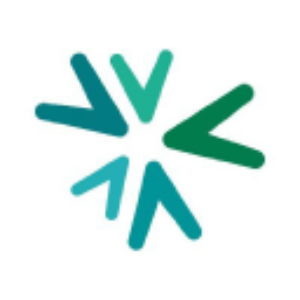Viridian Therapeutics Submits Investigational New Drug Application for VRDN-002 to the U.S. Food and Drug Administration
Viridian Therapeutics has submitted an IND application to the FDA for VRDN-002, a monoclonal antibody designed for thyroid eye disease. This innovative therapy incorporates half-life extension technology, enabling low-volume subcutaneous administration. The company aims to initiate a Phase 1 clinical trial to assess the drug's safety, tolerability, and pharmacokinetics with results expected in mid-2022. CEO Jonathan Violin emphasized this step is critical for their clinical strategy, alongside upcoming data for VRDN-001.
- Submission of IND application for VRDN-002 indicates progress in clinical development.
- VRDN-002 offers a novel delivery method with potential for improved patient convenience.
- Expected Phase 1 trial data could enhance investor confidence and market perception.
- Uncertainty regarding the success and timeline of clinical trials could impact stock performance.
- Possible regulatory delays in the clinical program may pose risks to projected milestones.
Insights
Analyzing...
- VRDN-002 is a novel anti-IGF-1R monoclonal antibody for thyroid eye disease and incorporates half-life extension technology designed to improve dosing and administration -
- Company expects to report top line VRDN-002 phase 1 clinical data in mid-2022 -
WALTHAM, Mass., Jan. 04, 2022 (GLOBE NEWSWIRE) -- Viridian Therapeutics, Inc. (NASDAQ: VRDN), a biotechnology company advancing new treatments for patients suffering from serious diseases underserved by current therapies, announced the submission of an investigational new drug (IND) application to the United States Food and Drug Administration (FDA) for VRDN-002, a humanized monoclonal antibody that incorporates half-life extension technology and is designed to support administration as a convenient, low-volume, subcutaneous injection for the treatment of thyroid eye disease (TED). Viridian submitted the IND for VRDN-002 in December 2021.
The Company is seeking authorization to initiate a Phase 1 single ascending dose clinical trial to explore safety, tolerability, pharmacokinetics, and target engagement of intravenous VRDN-002 in healthy volunteers. Data from this Phase1 trial aims to test the feasibility of a low-volume and/or low-frequency dosing paradigm, and are expected to be announced in mid-2022.
“This IND filing is an important step in the development of VRDN-002 and our broader clinical strategy execution for potential treatments for TED patients,” stated Jonathan Violin, Ph.D., Viridian Therapeutics’ President and CEO. “2022 will be a significant year for Viridian. We have multiple upcoming clinical milestones in the year beginning with data from the Phase 1/2 proof of concept trial for VRDN-001 in the second quarter of 2022, followed by data from the planned Phase 1 trial for VRDN-002 in mid-2022.”
About Viridian Therapeutics, Inc.
Viridian Therapeutics is a biotechnology company advancing new treatments for patients suffering from serious diseases but underserved by today’s therapies. Viridian’s most advanced program, VRDN-001, is a differentiated monoclonal antibody targeting insulin-like growth factor-1 receptor (IGF-1R), a clinically and commercially validated target for the treatment of thyroid eye disease (TED). Viridian’s second product candidate, VRDN-002, is a distinct anti-IGF-1R antibody that incorporates half-life extension technology and is designed to support administration as a convenient, low-volume, subcutaneous injection. TED is a debilitating autoimmune disease that causes inflammation and fibrosis within the orbit of the eye which can cause double vision, pain, and potential blindness. Patients with severe disease often require multiple remedial surgeries to the orbit, eye muscles and eyelids. Viridian is based in Waltham, Massachusetts.
Note Regarding Forward-Looking Statements
This press release contains forward-looking statements within the meaning of the Private Securities Litigation Reform Act of 1995. These statements may be identified by the use of words such as, but not limited to, "anticipate," "believe," "continue," "could," "estimate," "expect," "intend," "may," "might," "plan," "potential," "predict," "project," "should," "target," "will," or "would" or other similar terms or expressions that concern our expectations, plans and intentions. Forward-looking statements include, without limitation, statements regarding the Company’s expectations and guidance regarding its clinical trial plans for VRDN-001 and VRDN-002, the timing and nature of the initial results from such trials, and the therapeutic potential of VRDN-001 and VRDN-002, as compared to other therapies. Forward-looking statements are neither historical facts nor assurances of future performance. Instead, they are based on our current beliefs, expectations, and assumptions. New risks and uncertainties may emerge from time to time, and it is not possible to predict all risks and uncertainties. No representations or warranties (expressed or implied) are made about the accuracy of any such forward-looking statements. Such forward-looking statements are subject to a number of material risks and uncertainties including but not limited to: uncertainty and potential delays related to clinical drug development; the duration and impact of regulatory delays in our clinical programs; manufacturing risks; competition from other therapies or products; the timing of and clinical trial activities and reporting results from same; the effects from the COVID-19 pandemic on the company’s research, development and business activities and operating results, including those risks set forth under the caption “Risk Factors” in our Quarterly Report on Form 10-Q filed with the Securities and Exchange Commission (SEC) on November 5, 2021 and other subsequent disclosure documents filed with the SEC. Any forward-looking statement speaks only as of the date on which it was made. Neither we, nor our affiliates, advisors, or representatives, undertake any obligation to publicly update or revise any forward-looking statement, whether as a result of new information, future events or otherwise, except as required by law. These forward-looking statements should not be relied upon as representing our views as of any date subsequent to the date hereof.
Investor and Media Contact:
John Jordan
Viridian Therapeutics
Vice President, Investor Relations
& Corporate Communications
617-272-4691
IR@viridiantherapeutics.com








